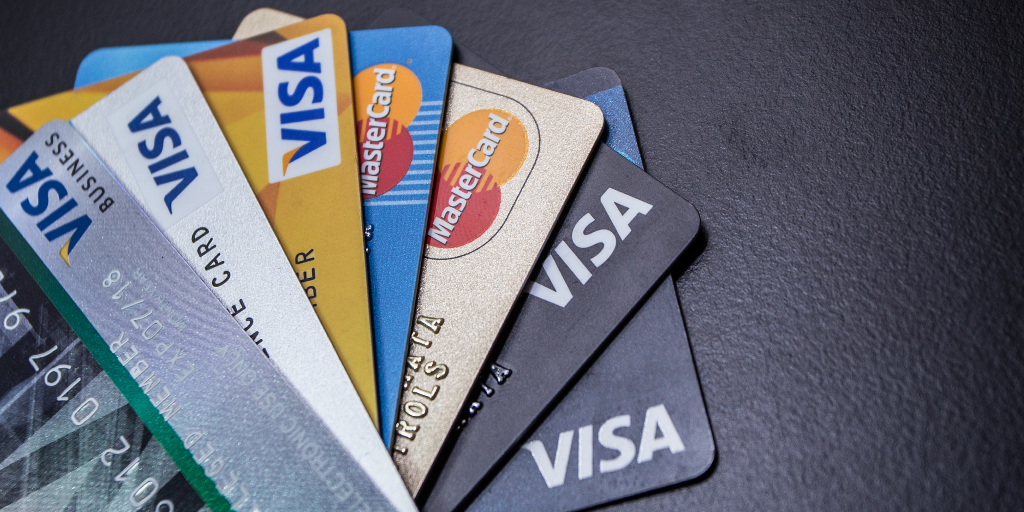Credit Card Churning Explained | CapWay

- Credit card churning is when you open multiple credit cards only to receive welcome bonuses, cash offers, or other perks.
- Churning credit cards can lower your credit score.
- When people credit card churn, they aim to earn as many miles, points, or cash-back bonuses as quickly as possible.
What is Credit Card Churning?
Opening credit cards just to receive welcome bonuses or other perks is known as credit card churning. Those who credit card churn, often called “churners,” generally close their credit card account after the bonus posts to their account and before the annual fee is assessed.
Usually, those who aim to build their rewards points with their credit cards do so gradually and stockpile their rewards through ongoing spending rewards. However, churners can accrue rewards more frequently because of such lucrative upfront bonuses.
Some churners are so dedicated that they can occasionally receive many gifts, such as vacations, hotel stays, or cash, for using the right credit cards.
Although credit card churning seems enticing, it can cause serious damage to your credit score. Credit card companies typically pick up on these red flags as they become a pattern for churners. Additionally, if credit cards are mishandled, you could risk falling into a major debt trap.
How Credit Card Churning Can Affect Your Credit Score
Your FICO scores are calculated using various credit data from your credit report. This information is divided into five categories: 35% payment history, 30% utilization ratio, 15% age of credit history, 10% new credit, and 10% credit mix.
Although welcome bonuses and other benefits are great, churning credit cards can lower your credit score and affect your ability to get approved for future loan applications. In addition, churning can negatively affect your ability to get a new credit line and may come with a higher interest rate. You could be denied a mortgage loan or other major loans based on churning patterns.

Credit card churning affects your credit score in the following ways:
Payment History
On-time payments account for the most significant portion of your credit score calculation. Your credit score can be impacted for up to seven years if you miss even one payment due to mismanaging too many credit cards. Therefore, automatic payments are essential to avoid late fees and bad credit report marks.
Utilization Ratio
Your credit utilization shows how much available credit you are using. The lower your utilization ratio, the higher your credit rating. Your utilization ratio may skyrocket if you spend a lot of money to get the welcome bonus. The negative impact can temporarily affect your credit score depending on how long you pay off the balance. However, if you carry a balance from month to month, you will pay a lot of interest which may harm your credit score.
Age of Credit History
The age of your credit history shows how responsible you can be over time. Your overall credit age is lowered when you open a new credit card. Your average credit age can be significantly lowered by opening multiple credit cards at once. When you have credit cards that you have kept active, and in good standing for a long time, it shows creditors your ability to manage money for a long time.
New Credit
Each time a hard inquiry is made due to a new credit application, your credit score takes a hit. Hard inquiries can lower your credit score for up to 12 months and stay on your credit report for up to two years. On the other hand, credit card churning involves numerous inquiries, which amplifies the damaging effects on a credit score.
Credit Mix
Lenders want to see how well you can handle different forms of credit. This is why they prefer a mixture of term loans and revolving credit. Term loans are mortgages and auto loans. These loans demonstrate your ability to consistently make the same payment throughout the loan term.
Revolving credit is centered around credit cards. This reflects your ability to exercise restraint and avoid exceeding your credit limit. If you apply for too many cards at once, your credit mix may be skewed toward revolving credit, which could harm your credit score.
Recommended Read: Revolving Credit Line vs. Non-Revolving Credit Line
Bank Rules to Prohibit Churning
Newly approved credit card applicants often don’t pay attention to the extra benefits, carry balances, and pay interest and annual fees for many years. The goal of credit card churning is the complete opposite. You obtain a new credit card, take advantage of as many perks as possible, pay off your balance every month, cancel the card before the annual fee is due, and move on to the following card.
Banks see credit card churners as some of the least profitable clients because they pay little or no fees and no interest. The banks still receive swipe fees when you make changes, though this may amount to little depending on how frequently the card is used after receiving the welcome bonus.
Banks have developed several strategies to deter credit card churning. Advertisers for credit card companies are advised to avoid mentioning the subject. Even churning language when discussing particular products may be discouraged on some websites with affiliate relationships with advertisers.
Banks have put in place a lot of regulations for consumers over the years to stop credit card churning in both forms. Even if you are not a credit card churner, it is good to be familiar with these guidelines before applying for a new credit card. You should avoid applying for a credit card where you know that your credit score or history won’t fit the application criteria. This will help you avoid credit inquiries that temporarily lower your credit score.
Recommended Read: Millennials and Gen Z are Paying the Most in Banking Fees
Targeted Offers
Banks target potential customers with credit card offers. They come from frequently visited websites as well as through the mail. However, these targeted offers may only sometimes contain the limiting language found in the standard application for that product.
A targeted offer might grant you access to a card you wouldn't otherwise be qualified for or come with a higher welcome bonus than the standard offer. In addition, you can apply for and receive an offer even if you are already a credit card holder with that company.

You should be mindful of whom the targeted offer is addressed. For example, if the credit card isn’t for you, then the credit card company could reverse their offer, also known as claw back, then close your account, which would, in turn, take away your rewards points.
Recommended Read: Americans Rely More on Credit Cards Due to Inflation
The Money Wrap-Up
The goal of credit card churning is to earn as many miles, points, or cash-back bonuses as possible. However, numerous banks have implemented many strategies to deter credit card churners. As a result, they have the right to revoke your cash-back bonuses or mileage points.
Most often, credit card churning isn’t worth the risk of lowering your credit score or damaging your credit history. So, if you apply for a credit card, be strategic to benefit your financial health in the long run.